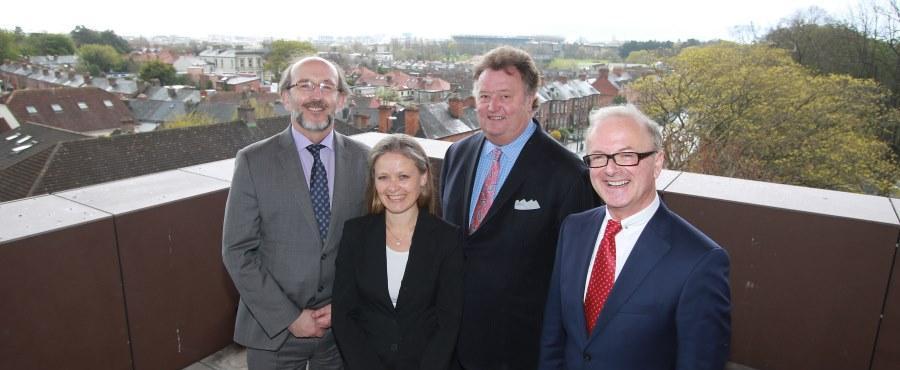

New centre at DCU to provide better assessment models for Irish students
Dublin City University has today launched a research centre which will develop new and better ways of assessing Irish students at all stages of the education continuum and provide the fair and valid test scores people require to earn professional licences and certifications.
The Centre for Assessment Research and Policy in Education (CARPE) has been established to drive progress in the practice of assessment across all levels of the educational system (early childhood to fourth level) and professions (job entry and advancement). The Centre will actively focus on conducting high-quality research and development in assessment, as well as establishing global networks and contributing to assessment policy-making.
Professor Michael O’Leary, recently appointed as Prometric Chair in Assessment to provide academic and research leadership within the Centre, outlined the wide range of research projects and initiatives already underway which directly address the challenges posed by existing and new concepts of assessment:
-
A joint research project in partnership with the Irish National Teachers Organisation (INTO) on how standardised tests of literacy and numeracy (such as the Drumcondra) are understood and used in Irish primary schools;
-
Audit instruments that encourage teachers to use data to reflect and act on their use of assessment for learning;
-
The equivalence of test outcomes across different modes of delivery eg web, paper-and-pencil, mobile devices etc;
-
The use of animations to expand the knowledge and skills that can be assessed;
-
Public debate/lecture series on Irish assessment policy including proposed changes to the state examinations;
-
Master’s in Education programme at DCU Institute of Education.
Speaking at the launch, Professor O’Leary explained the vision of the new research centre,
“Assessment matters because it exerts a powerful influence on what happens in our schools, universities and other learning environments. My ambition is that CARPE will be linked to all the major assessment research centres globally, and I am delighted to announce today that five internationally recognised assessment experts have agreed to sit on the advisory board for CARPE. At this moment in time, given all that is happening in assessment here in Ireland and internationally with, for example, PISA, TIMSS and PIRLS, the field of assessment is an exciting and challenging field of research and policy development.”
CARPE will be located within the new DCU Institute of Education, which has been created by the coming together of St Patrick’s College of Education, Mater Dei Institute of Education and the Church of Ireland College of Education with DCU.
Professor Brian MacCraith, President of DCU said,
“As a core element of DCU’s Institute of Education, CARPE will address the perennial challenges of assessing learning that we encounter throughout the education system. We must change our focus from ‘assessment of learning’ to ‘assessment for learning’ where the test itself becomes part of the learning process. We must also move away from ‘teaching to the test’ to encouraging the development of attributes and skills that enable students to flourish in the workplace. This new research centre will set about changing mind-sets about what we see as valuable in terms of learning, how we assess these things and, most importantly, how we can evaluate these skills at scale.”
Prometric, the US-based testing company which has 180 employees in Ireland, contributed nearly €1m to support Dublin City University’s establishment of the CARPE, funding the appointment of the Chair in Assessment and the creation of two additional jobs, a Post-Doctoral researcher and a PhD Scholarship at the Centre. Prometric’s corporate values state its belief in helping people worldwide realise their human potential.
